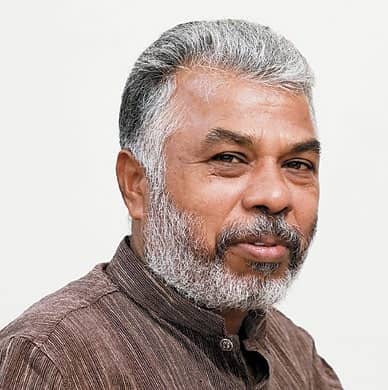THE INK NEVER DRIES
Forbes India
|March 13, 2020
For exiled authors, continuing to write shapes their creative process and response to persecution

Nineteen months of being “a walking corpse” changed Perumal Murugan as a writer.
The ordeal of his exile, as he calls it, ended when the Madras High Court, in July 2016, ruled that the Tamil author must be “resurrected to what he is best at: Write”. According to Murugan, those words comforted a “heart that had shrunk itself and wilted”, as they upheld his freedom of expression against violent caste groups that had claimed his novel Madhorubhagan (One Part Woman) hurt religious and social sentiments. The protestors, with support of the local administration in his hometown Tiruchengode, had extracted a written apology from the writer, forced him to delete controversial portions of his book and withdraw it from stores. Murugan and his wife Ezhilarasi, both professors of Tamil literature at the Government Arts College in Namakkal at the time, had to abandon their home of 17 years and relocate to Chennai along with their two children.
So while the court ruling did more than just bring Murugan out of exile—it gave the 53-year-old author a new lease of life and career success—the persecution has drastically altered his creative process. “I think twice, and restrict myself before writing about caste now. It wasn’t the case before, when I wrote frankly, without fear,” says Murugan, on the sidelines of the Kerala Literature Festival in Kozhikode in January, where he was speaking about Amma, his first nonfiction work translated into English. The book is a collection of essays that pay tribute to his late mother Perumaayi, while giving a glimpse of agrarian life in Tamil Nadu.

This story is from the March 13, 2020 edition of Forbes India.
Subscribe to Magzter GOLD to access thousands of curated premium stories, and 10,000+ magazines and newspapers.
Already a subscriber? Sign In
Translate
Change font size

